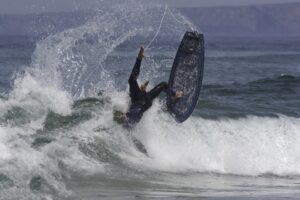When you are facing a challenge, do you consider what type of challenge it is?
When you are coaching someone else through a challenge, do you consider what type of challenge it is?
In The Power of Curation, I wrote about how curation is a fundamental skill of teaching/coaching because it’s a form of creating context, which provides meaning and direction for learning and problem solving to occur. The way curation creates context is through pedagogical categorization. Categorization helps our brains to chunk information, so we are more capable of handling mental complexity.
Therefore, it behooves us to categorize challenges in one of two categories, so we can be more clear about how to address them. Leadership expert, Ronald Heifetz, has a very useful way of distinguishing between types of challenges: TECHNICAL challenges versus ADAPTIVE challenges.
Technical Challenges: Are domain specific. They involve technical knowledge that is directly related to a specific discipline of study in which the skillsets necessary to overcome the challenge are well known and reliable.
Adaptive Challenges: Are domain agnostic. They involve one’s mental skills consisting of mindset, self-awareness, self-regulation, and self-reflection.
“Many, if not most, of the change challenges you face today and tomorrow require something more than incorporating new technical skills into your current mindset. These are the ‘adaptive challenges,’ and they can only be met by transforming your mindset, by advancing to a more sophisticated stage of mental development”
Robert Keegan, Lisa Lahey, Immunity to Change, p. 29
Technical challenges have more to do with the problem in and of itself. Whereas, adaptive challenges have more to do with the person having the problem. What may be just a technical challenge for one person can actually be more of an adaptive challenge for someone else.
For example, when it comes to utilizing and being proficient at using social media, Generation Z individuals are more likely to experience this as a technical challenge. Whereas, for baby boomers, because they lived the majority of their life with no internet, let alone social media, utilizing and being proficient at using social media is more likely to be an adaptive challenge.
Then, of course, there are pursuits that are inherently more adaptively challenging than technically: having difficult conversations, giving and receiving feedback, maximizing your potential, helping others to maximize their potential, overcoming adversity, and building trust–to name a few.




